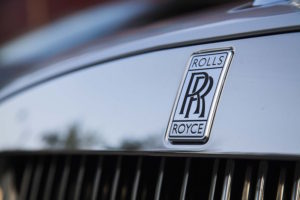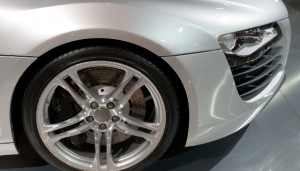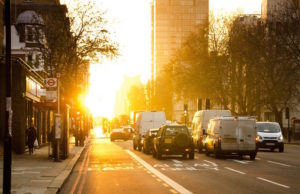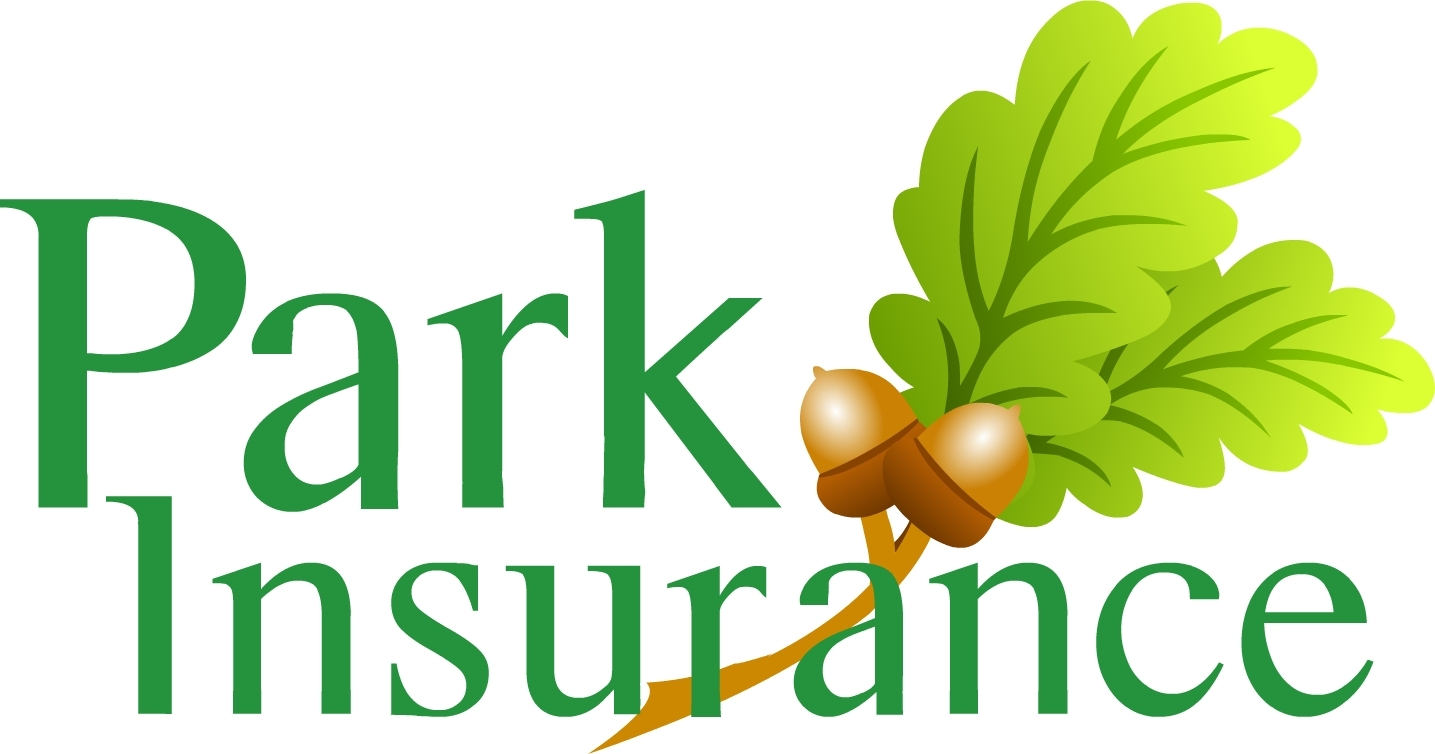VIEW OUR COMMERCIAL
As seen on TV

CHOOSE THE EASY OPTION FOR YOUR INSURANCE, WE’LL GET YOU A QUOTE IN NO TIME AT ALL.
LATEST NEWS
With prices hitting nearly £900, iPhones are an expensive investment. They’re also all too easy to drop or leave behind on the train and are a target for thieves. Insurance gives you peace of mind that your precious piece of tech can be fixed or replaced with no unexpected bills. But do you need iPhone insurance? Read on to find out.
First, do I need iPhone insurance?
Insurance is all about managing risk. You pay a relatively small sum of money for the peace of mind that if something does happen, you won’t have a big bill to pay. Of course, you may enjoy many years with your iPhone without the need to make a claim.
To decide if you need iPhone insurance, you’ll need to weigh up the following:
- Are you the sort of person who easily loses things?
- Would it be tricky to afford to replace your iPhone if it got damaged or stolen?
- Does the thought of not having a phone for a week or longer make you break out in a cold sweat?
If you’ve answered yes to any of the questions above, iPhone insurance is definitely worth considering.
What does iPhone insurance cover?
Different insurance policies include different features, so it’s important to always read the small print to see what you are buying.
Here’s our top five list of handy features to look out for when you buy iPhone insurance:
- Are downloads included? Some insurance policies will cover the cost of replacing downloads (like music) lost when your phone is damaged or stolen. If that’s important to you, make sure it’s included.
- Will you get a temporary replacement handset? If your phone is damaged, your insurance company is likely to send it for repair, which can take weeks. If you can’t bear the thought of being without your phone, make sure your insurance offers a temporary replacement handset whilst yours is being repaired. Some policies can even offer a rapid replacement guarantee, sending a new phone within as little as four hours. If that’s something you want, make sure it’s included.
- Unauthorised calls. Some mobile phone insurance policies will cover the cost of expensive calls made without your authorisation if your phone is stolen. Premium line calls can quickly mount up, so adding this cover buys extra peace of mind.
- Most Brits admit to using their phone on the toilet according to YouGov. But not every phone insurance policy will cover you if it suffers water damage, as a result of being dropped down the loo for example. For total peace of mind, check your phone insurance does include cover for water damage or other ‘careless’ situations, such as leaving it on the train.
- Cover overseas. If you like to Instagram your holiday pictures, you’ll be reassured with an insurance policy that includes overseas travel.
Remember: If you don’t need all these different types of cover, make sure you don’t pay for it. Look for a tailored policy so you only pay for what you want.
Next, is it covered already?
You may have decided that iPhone insurance is worth it for you. But don’t rush out and buy a new policy just yet – first, take the time to discover if your phone is covered already. Check your home insurance policy carefully to see if your phone is included or have a chat with your broker if you’re not sure. Some bank accounts also include mobile phone insurance, so speak to your bank. If you are already covered, make sure you check what is and isn’t included. For example, will it replace your iPhone with a new handset or a refurbished one? And does it offer a temporary phone to keep you connected whilst yours is being fixed?
It’s also worth double-checking the terms of the cover. With some home insurance policies, your phone will be covered whilst it is in the home but not when you’re out and about.
Do I have to buy the insurance I’m offered when I buy the phone?
No. When you buy a new iPhone you’re likely to be offered insurance, but you don’t have to take this. Instead, you are free to shop around to find the best deal.
Things to consider when you buy iPhone insurance
To make sure the iPhone insurance you buy is worth the cash, think about these things:
- Is your iPhone under warranty? Remember the warranty covers your phone for mechanical failure, but won’t cover you if the phone is lost, stolen or damaged accidentally.
- How much is the excess? This is the amount of money you have to pay if you make a claim. Generally the higher the excess, the lower the cost of the premium (the amount you pay for the insurance). Tweaking the excess is a great way to save money, but make sure it is still affordable to you. If you set the excess too high you might not be able to afford to make a claim.
- Are any other gadgets included in the policy? Chances are you also have a laptop or iPad that you would like to insure. Buying a bundle deal that covers all your tech away from the home can be cheaper than separate policies. Speak to your insurance broker to find out more.
Buying value for money iPhone insurance
Always compare prices from as many different insurance companies as you can to be sure you’re getting the best price. A price comparison website can be a good place to start, but remember not every insurance company is represented on these sites. It’s also important to check that the cover you specify when getting a quote matches the cover offered to you. Just because you tick a box for new for old cover, there’s no guarantee that the quotes you are given by the comparison website will include this.
Alternatively, you can use an independent insurance broker like Easy2Insure. We’ll do the legwork for you to find the best price on iPhone insurance with no nasty surprises in the small print. Simply call our friendly team on 0800 917 9522 today.
If you rent out a holiday home or Airbnb a room in your home, the right insurance can help you increase your return. Firstly, standard home insurance is not suitable, so you need to look for a specific policy that covers holiday lets. As with all types of insurance, there are lots of options out there and not every policy will suit everyone. To make it Easy2 decide what you need, here’s an outline of the different types of cover most holiday let owners need to consider.
Buildings insurance
Buildings insurance covers the structure of your holiday home against damage, for example as a result of a fire or flood. If you own the property with a mortgage, buildings insurance is likely to be a condition of the loan.
Contents insurance
If you rent the property fully-furnished, contents insurance covers the cost of replacing the contents if they are damaged or stolen.
Think about:
- There’s an option to extend contents cover to include accidental damage caused by you or your guests. If you allow pets to stay in the property, it’s worth checking your insurance covers accidental damage by pets too.
- Double-check your holiday let insurance covers theft by guests.
To calculate the amount of cover you’ll need, list everything that you’d need to replace in a worst-case scenario, for example, if there was a fire. Don’t forget things like beds and bedding as well as obvious things like the TV. You can’t rent out your holiday home without these items, and if the worst does happen and you don’t have the right level of cover, it could delay how quickly you can get it ready to rent out and earning you an income.
Emergency cover
How many times have you been contacted by a guest to say the washing machine isn’t working or the electrics have blown? If you live close to your holiday let and are good at fixing things you may be able to sort it out yourself quickly. But if you don’t, taking out emergency cover insurance gives you peace of mind. You or your guests will have 24-hour access to trusted workmen who will come and fix the problem with no fuss and no extra cost. With things like water leaks, this can also help to minimise any damage that is caused, lowering your bills in the long-term.
Public liability insurance
No matter how careful you are, accidents can happen and that could lead to legal action. For example, a guest could trip over a loose paving slab at your holiday let and hurt their ankle. No-win, no-fee legal support makes it easy for a guest or visitor in your property to bring a legal case against you for financial compensation. Even if you are not found to be negligent, it can be costly to defend your case. Public liability insurance for holiday lets can be considered essential for your peace of mind. It covers the cost of your legal fees and any compensation that is awarded. It also gives you access to a legal team that will take control of the case, so you’ll have one less thing to worry about.
It’s also worth checking that your public liability insurance covers you for damage occurring to a neighbouring property because of a problem with your property. For example, if a guest floods the bathroom and it causes damage to the apartment below.
Loss of earnings insurance
Do you rely on your income from your holiday let to pay the mortgage? If something happens and you can’t rent the property, can you cope financially? If not, loss of earnings insurance could be worth considering. This will pay out a sum of money if it’s not possible to rent your holiday home, due to circumstances beyond your control.
You might also want to consider including an alternative accommodation option. That means if you have to cancel someone’s holiday, or they have to move out mid-stay, the cost of offering them alternative accommodation is covered.
Emergency travel expenses
If your holiday home is abroad, it can be expensive to travel at short notice if there’s an emergency. Ask your insurance broker about adding on emergency travel expenses cover. This can give you peace of mind there will be no expensive extra bills to worry about.
How to reduce your holiday let insurance premiums
Don’t be tempted to skimp on insurance. Instead, use these tricks to get the best price on your premium:
- First, increase your excess.
- Next, increase security. Staying claim free is one of the best ways to keep future premiums down. Increasing the security around your holiday home is one way to deter thieves. Always let your broker know if you have CCTV or smart devices connected that can detect a water leak. This active approach to keeping the property safe can help them to negotiate the best price on your behalf.
- Thirdly, carry out regular maintenance at the property. Keeping your holiday home in good condition is another way to help to reduce the risk of making a claim. If it’s going to be left empty, make sure you take steps to prevent burst pipes. Keep gutters clear and replace any damaged roof tiles.
- Finally, shop around. If you want to be sure you’re getting a good deal you need to shop around. You can either contact the insurance companies yourself or use an insurance broker to do this for you.
Top tip: An independent insurance broker like Easy2Insure is not tied to any insurance company. They’re free to scour the market for the best price on your behalf. Easy2Insure is part of the respected Park Insurance Group, one of the largest independent brokers in the UK. With significant buying power and established expertise, you can benefit from their knowledge and negotiating clout. For a free quote call, 0800 917 9522 or get a quote.
Finally, for more ideas on getting the best ROI on your holiday home, check out our 8 tips for decorating your holiday home blog.
It might come as little surprise that the most expensive car to insure is the ultra-luxury Rolls Royce Wraith. If you’re lucky enough to own one, the annual cost of insurance is a whopping £10,500.
The top 20 most expensive cars to insure list is dominated by supercars and high-end 4x4s. High-performance road rarities, like the Aston Martin Superleggera and Honda NSX, make the top five. But they’re not the only cars that you’ll need deep pockets for when it comes to car insurance. We outline which cars will mean pumped-up premiums and how to get costs down.
A matter of risk
Insurance is all about risk. In the UK, new cars are given an insurance rating from 1 to 50. The lower the rating, the lower your insurance is likely to be. At the other end of the scale, if you buy a car in insurance group 50, you’ll be forking out more.
Generally, the faster the car is, the bigger the risk of an accident occurring. And that means higher premiums for cars with bigger engines and turbo-chargers. Some cars are also more appealing to thieves, and that makes them more expensive to insure.
And there are other things that can make a car more expensive to insure.
Modified cars
Any modifications to a vehicle can push up the price of your premium. This can be cosmetic changes, like a body kit or a wrap, or performance enhancements. Disabled adaptations can also impact on the cost of insurance. That’s because any changes to the factory standard could make the vehicle more costly to repair. Modifications can also make a vehicle a target for thieves.
Imported cars
Insurers crunch data to come up with your premium. If your car is imported, there’s generally less data to analyse. With less information available, insurers generally charge higher premiums.
Future classic cars
Whilst insuring a classic car can often cost less than you may expect, it can be a little trickier with future classics. These are cars that are not old enough to be considered a classic vehicle but are likely to become classics in the future. This means their true value is often higher than the list price. For your peace of mind, you’ll need to find an agreed value policy.
Electric vehicles
Electric vehicles can be more expensive to insure than their diesel or petrol counterparts. This is partly because they cost more to purchase, but is also because they can be more expensive to repair.
The cheapest cars to insure
If finding cheap car insurance is important to you, you might want to consider switching to one of the cheapest cars to insure. According to AutoExpress the cheapest cars to insure include the Nissan Micra 1.0, the Volkswagen Polo 1.0 S and the Skoda Fabia 1.0 S. These are all group one cars, so you can be sure they’ll get you on the road at the lowest price possible.
How to get a better price on car insurance
Saving money on insurance doesn’t stop at the car you own. Whether you’ve got a low group car or one of the most expensive cars to insure, there are some simple steps you can take to get the cheapest car insurance.
- Don’t just accept your renewal quote. Insurance companies rely on us being too busy to change our insurance every year. That means it’s likely that your renewal quote will be higher than you could get if you switch. It’s worth taking time to shop around. You can do this by ringing around insurance companies or filling in forms online. Another option is to use an online price comparison website. Just be wary that some comparison websites might charge more for the same policy than you’d find elsewhere. They also don’t represent every insurance company out there, so you may need to use a couple. And make sure you always read the small print before you buy. Some comparison websites may show you results that don’t match your original search details. They may be low on price, but it can cost a lot more in the long run if you don’t have the cover you expect. Your third option is to use an independent insurance broker like Easy2Insure to do the legwork for you. When you use a broker you only need to give your details once. They then call around a wide choice of insurance companies to find you the best price. They’ll clearly explain what cover you get and help you to find a policy that matches your needs and budget.
- Specify your mileage. If you cover a lower than average mileage each year, make sure you tell your insurance broker. Fewer miles travelled means a lower risk of having an accident, and that translates to lower premiums.
- Consider increasing your excess. The excess is the amount you’ll automatically pay if you make a claim. Normally there will be a set compulsory excess that you have to pay. Insurance companies set these in an effort to reduce the number of costly small claims. You can also opt for additional excess. Generally, the higher your excess, the lower your premium will be. Just make sure you keep it affordable for you.
- Always pay your insurance annually if you can. If you opt to pay monthly for car insurance, you’ll end up paying much more than if you pay in one go. Some insurance companies will charge up to 20% extra for monthly payment plans. So if your basic premium is £500 a year, you’ll end up paying around £600 in monthly instalments.
It’s Easy2Insure your car
We’re here to help you to find the best price on car insurance you can rely on. As part of the trusted Park Insurance group, we use our buying power to negotiate hard on your behalf. That means we can find high-quality insurance to suit your budget from some of the UK’s best insurance companies. Getting a quote is completely free and you’re under no obligation to buy. Call our team on 0800 917 9522 or get a quote today.
When you work as a freelance courier, you can enjoy lots of benefits like the freedom to choose your hours. But when you’re your own boss, you also have to think about essentials such as what insurance you need. Without it, you could find yourself in financial hot-water if something unexpected happens. So, to save you time and money, we’ve put together this guide on freelance courier insurance and where to buy it at the best price.
What types of insurance do self-employed couriers need?
Some insurance is a legal necessity, and some are just a good idea to have.
1) Motor Insurance
If you have a car, van or motorbike, you’ll need a minimum of third-party insurance by law. This covers the cost of any damage to other vehicles and injuries to people if there is an accident. It won’t pay out for the cost of repair or replacement of your vehicle if it is damaged or stolen. Alternatively, you can take out comprehensive motor insurance, which covers your vehicle too.
Don’t assume that third-party only cover will be the cheapest option. And if you rely on your vehicle for your work, consider if you’d be able to repair or replace your car if something unexpected happens. If you can’t this could seriously affect your ability to work as a freelance courier.
Remember, not every motor policy comes with a guaranteed replacement car whilst yours is being repaired or replaced. If you need that, make sure it’s included. And if you rely on a certain size car or van, take out a policy with a guaranteed like-for-like car hire option.
Remember: You’ll need a specialist commercial motor policy – an ordinary domestic insurance policy won’t cover you.
2) Breakdown cover for couriers
As a courier, you rely on your wheels. So what happens if you breakdown? Make sure you can get back on the road quickly with specialist breakdown cover for couriers.
3) Public liability insurance
You come into contact with the public every day. And when you do that, there is always a risk that they could be injured or property could be damaged. Accidents can and do happen, no matter how careful you are.
For example, imagine you’re stood waiting for a signature when someone trips on your bag that you’ve momentarily put on the floor. They break their wrist and claim for compensation for both the injury and their loss of wages.
With the increasing number of compensation claims being brought against bike riders, public liability insurance can be especially useful if you use a bicycle to courier items.
Imagine that you accidentally cycle into a pedestrian crossing the road, for instance. They fall and hurt their ankle. They can sue you for the injury caused as well as for loss of wages. Add on the legal fees to defend your case, and it can be a very expensive accident.
Public liability insurance covers your legal costs if a member of the public makes a compensation claim against you. Even better, it puts a legal team at your disposal, so you won’t need to worry about a thing. Instead, you can concentrate on your work.
4) Employer’s liability insurance
Although most freelance couriers are self-employed one-man-bands, if you employ others you’ll need employer’s liability insurance. This is a legal requirement even if your employee only works part-time. It works like public liability insurance, paying legal fees if anything unexpected happens to your employees connected to your business.
5) Goods in transit insurance
Whether your couriering food or packages, you’re responsible for these items whilst they are in your possession. If they are damaged in an accident or are stolen, you may be liable to pay up. Goods in transit insurance covers this liability.
Remember: Most policies will set a maximum single item limit (the maximum amount you can claim for one item). They also normally specify the maximum combined claim limit (the total amount you can claim for multiple items.) You won’t normally know what you’re transporting, so when you calculate how much cover you need make sure you don’t underestimate it.
6) Personal injury insurance
Have you thought about what will happen if you have an accident and can’t work as a freelance courier? Worries over who will pay the bills, especially if you have dependents, can be removed when you take out personal injury insurance. Also known as personal accident insurance, this pays compensation if you suffer a serious accident or die.
Remember: Personal injury insurance for you is not normally included with your vehicle insurance. Whilst motor insurance pays personal injury claims for anyone you injure when you’re driving the vehicle, it won’t pay out if you are injured. That’s why you should consider taking it out as part of your courier insurance bundle.
Finding cheap freelance courier insurance
Remember, you get what you pay for. Cheap courier insurance might not give you the level of protection you need. But you can still find great value for money insurance with these top tips:
Try telematics
Fitting a telematics box to your car or van can mean lower insurance premiums, but only if you’re a safe driver. It records things like speed, braking, and erratic driving. Whilst safe driving is rewarded with lower insurance premiums, if you’re considered to be driving unsafely, your insurance costs can rise.
Use a dash-cam
Installing a dash-cam can save you money on your courier insurance. It clearly records who is at fault in the event of an accident and that can save the insurance company money. You’ll need to pay for the installation of the dash-cam, but this cost can potentially be offset against tax.
Drive carefully
The best way to keep your insurance premiums low is to stay claim-free.
Don’t declare spent penalty points
You must always tell your insurer if you have any endorsements on your licence but beware of over-declaring penalty points. If you’ve had endorsements on your licence for driving offences, check online to see if they’re still valid. If you tell your insurance broker that you have penalty points but they are spent, you’ll be unnecessarily paying over the odds for your insurance.
Beat the thieves
Vans are an attractive target for thieves. Reduce insurance costs by fitting an immobiliser or professional alarm. If you can, park your van in a street with good lighting and where there are plenty of passers-by. Keeping your vehicle parked in a locked garage overnight can also help to lower premiums.
Shop around for the best deal
As with all insurance, it pays to shop around for your courier insurance. But that doesn’t mean hours spent phoning around or trawling the internet. Use an independent broker, like Easy2Insure, which can quickly access specialist policies. Even better, you can trust your broker to find you the right level of cover, so there are no nasty surprises lurking in the small print.
As with all insurance, it pays to shop around for your courier insurance. But that doesn’t mean hours spent phoning around or trawling the internet. Use an independent broker, like Easy2Insure, which can quickly access specialist policies. Even better, you can trust your broker to find you the right level of cover, so there are no nasty surprises lurking in the small print.
Cheaper courier insurance you can rely on
It’s Easy2 find great value freelance courier insurance. Call our helpful team on 0800 917 9522 or get a free quote.





















